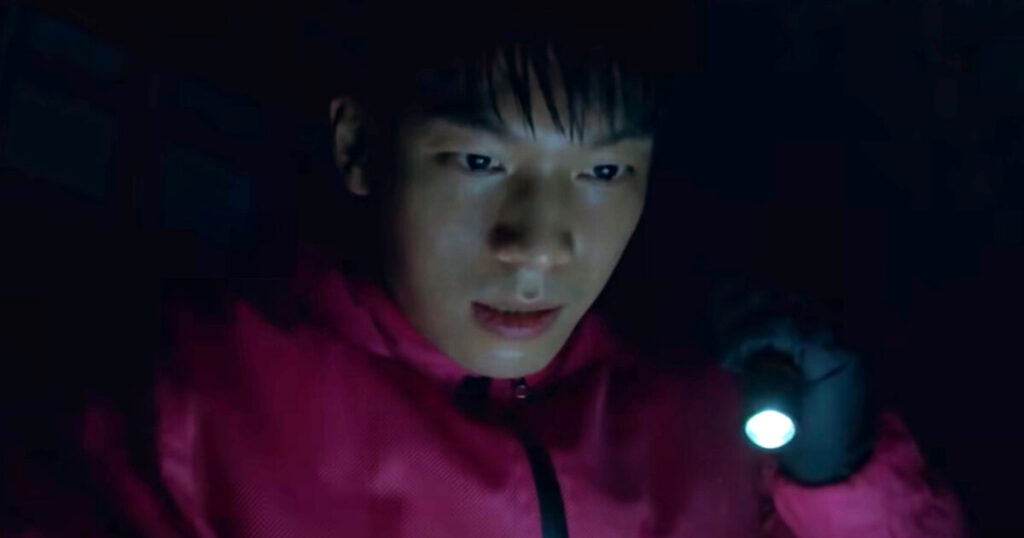Amid the mixed reactions to the unexpected ending of Squid Game and its three rollercoaster seasons, director Hwang Dong Hyuk has revealed in a recent interview that the finale was initially conceived differently. Speaking to the Joongang Ilbo, Hwang shared that the original conclusion of the Netflix hit had a “vague happy ending” in mind.
Hwang explained, “At first, I envisioned a vague happy ending in which Seong Gi Hun meets Hwang Jun Ho, ends the game, and goes to find his daughter in the U.S.” The director’s perspective shifted as he observed global events, including the lavish wedding of Jeff Bezos, which influenced his decision to alter the narrative to reflect the growing inequalities and challenges in the world.
From Happy Ending to Harsh Reality
Hwang’s decision to change the ending was driven by a desire to mirror the complexities of the real world. “I personally started to feel that surviving in this world was becoming increasingly difficult,” he noted. “Inequality is deepening, the threat of war is growing, the climate crisis is already here, and yet no one is taking responsibility.”
He further elaborated on the societal issues that influenced his writing process. “In this world where nationalism is intensifying, how will future generations live? I heard that Jeff Bezos spent over ₩70.0 billion KRW (about $51.7 million USD) on his wedding, and it made me think—wealth is concentrated in the hands of a few.”
“Now is the time for older generations to let go a bit of their growth, development, and desires, and start making sacrifices and taking action for future generations. That’s why I decided to include a child in the story.” — Hwang Dong Hyuk
Audience Reactions and Criticisms
While Hwang’s interview provided some insight into the controversial ending, it also sparked backlash from viewers who felt that the director often resorts to explaining his intentions through interviews rather than the show itself. “This director always ends up explaining what he intended and should’ve been shown in the work through his yappy interviews,” one critic commented.
Others expressed skepticism about the director’s motives, suggesting that he uses alternative endings as a defense against criticism. “Every time he gets criticized, he suddenly claims there was an alternative ending,” another viewer remarked.
Despite the criticism, some fans appreciated the current ending. “The current ending isn’t too bad, but as someone who loves patriotic stories, I think the original ending would’ve been more successful,” said a fan, highlighting the divide in audience preferences.
The Broader Implications
The debate over the ending of Squid Game touches on broader themes of storytelling and audience expectations. In an era where viewers are increasingly vocal about their preferences, creators face the challenge of balancing artistic vision with audience satisfaction. The show’s ending has become a focal point for discussions about the role of media in reflecting societal issues.
Hwang’s decision to incorporate themes of inequality and generational responsibility resonates with ongoing global conversations about wealth distribution and environmental sustainability. By choosing a more somber ending, he invites viewers to reflect on the state of the world and their role in shaping the future.
Looking Ahead
As Squid Game continues to captivate audiences worldwide, the conversation around its ending is likely to persist. Whether viewers agree with Hwang’s choices or not, the show’s impact on popular culture is undeniable. The series has sparked discussions not only about its narrative but also about the broader societal issues it seeks to address.
Ultimately, the debate over Squid Game‘s ending highlights the power of storytelling to provoke thought and inspire change. As audiences continue to engage with the series, the questions it raises about inequality, responsibility, and the future remain as relevant as ever.
 PBOC Sets Yuan Midpoint at 7.1546, Slightly Below Market Estimates
PBOC Sets Yuan Midpoint at 7.1546, Slightly Below Market Estimates Mets Eye Brewers’ Freddy Peralta to Bolster Pitching Roster
Mets Eye Brewers’ Freddy Peralta to Bolster Pitching Roster Ducks Bolster Roster with Mikael Granlund Signing Amid Strategic Overhaul
Ducks Bolster Roster with Mikael Granlund Signing Amid Strategic Overhaul Trey Mancini Becomes Free Agent After Opting Out of D-backs Deal
Trey Mancini Becomes Free Agent After Opting Out of D-backs Deal Guardians Reflect on Matthew Boyd’s Impact in 5-2 Loss to Cubs
Guardians Reflect on Matthew Boyd’s Impact in 5-2 Loss to Cubs